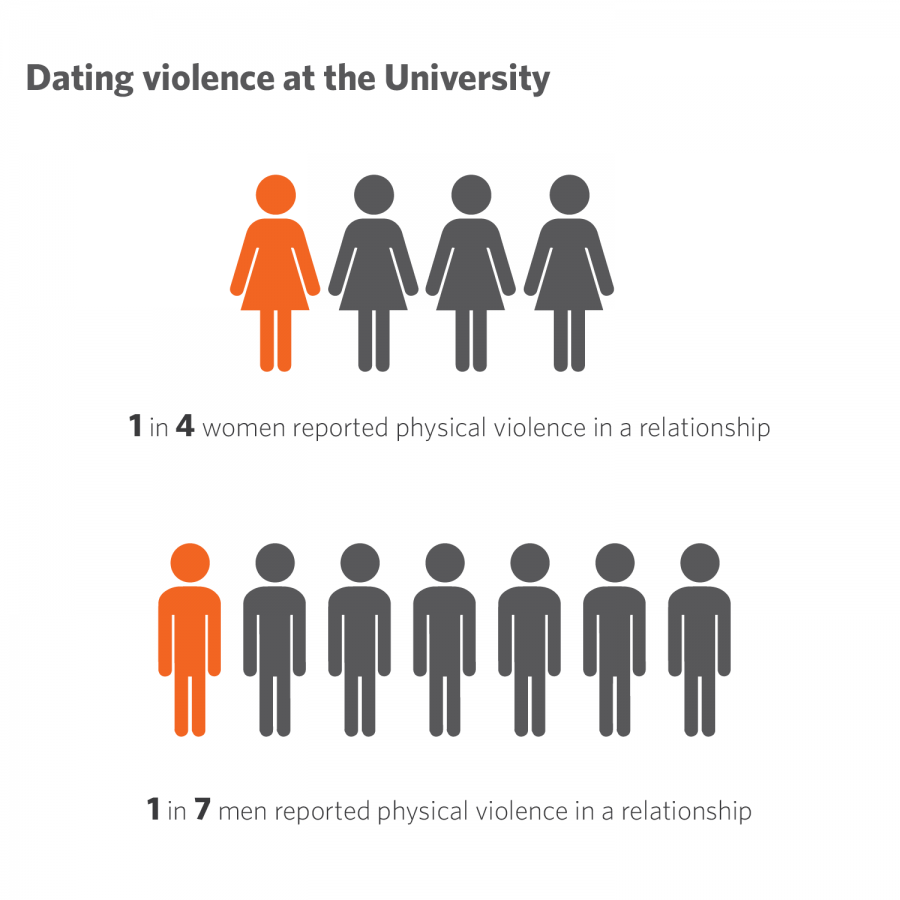University’s updates sexual misconduct policy
Source: University of Illinois Sexual Misconduct and Perceived Campus Response Survey
Nov 27, 2017
The Sexual Misconduct Policy for the University has changed wording in some parts in order to make the consequences and main idea clearer. However, the message still stays the same: Any type of sexual misconduct will not be tolerated at the University.
The University’s policy applies to anyone affiliated with the school and prohibits any form of discrimination against sex. This includes all forms of sexual misconduct: harassment, assault, stalking, dating/domestic violence and exploitation.
Usually, the changes are made based on language rather than policy itself, said Deputy Title IX Coordinator Justin Brown.
“The most recent changes weren’t actually changes to the policy at all, but were actually changes to the links that we needed to have associated with the policy in some way,” he said. “Easy ways of directing people to bits of information.”
The policy lists resources, including the medical resources that a person can contact should they become a victim of sexual misconduct.
Get The Daily Illini in your inbox!
Brown said these changes are usually brought about by legislative decisions coming from the state or national government.
Every state university in the U.S. is required to have a Title IX coordinator, whose job will usually involve some sort of sexual misconduct policy.
“I think that it’s important, too, that there be some guidance and some blueprint for how universities are to handle discrimination whenever it’s found,” Brown said.
Patrick Wade, communications director of the University of Illinois Police Department, said that having a sexual misconduct policy provides options for survivors to turn to.
“It creates a mechanism where we are better able to hold people accountable,” Wade said.
Wade said he has seen a steady increase of the amount sexual misconduct reports come in, but this is not because more assaults or harassments are occurring; it is because more people are aware of the misconduct situations.
“I think we’re talking more and more about it as a society, especially on a college campus,” he said.
Brown agreed that more reports are coming in.
“It’s entirely because more and more people are being made aware of and being directed to reporting,” he said.
Rape culture has been around for a while and will probably always be around; it is a problem that is never going to be solved, but the amount of assaults that happen can and should be decreased, Brown said.
In 2015, just over 2,000 University students completed a survey about sexual misconduct. The survey concluded that 1 in 7 women reported to have experienced sexual assault, whereas 1 in 42 men identified themselves.
“We want be able to connect (victims) to resources that we can provide, but we can only do that if the survivors feel comfortable reporting,” Wade said.
Wade said the UIPD makes sure that they have detectives that are specially trained to talk to survivors in order to make sure the right information is found and treated correctly.
He also said that rape culture is not something that is unique to universities, but that it is relevant everywhere, and in order to solve that problem, education and prevention need to start at a young age.
“(Rape culture) is a problem of our society,” he said.






